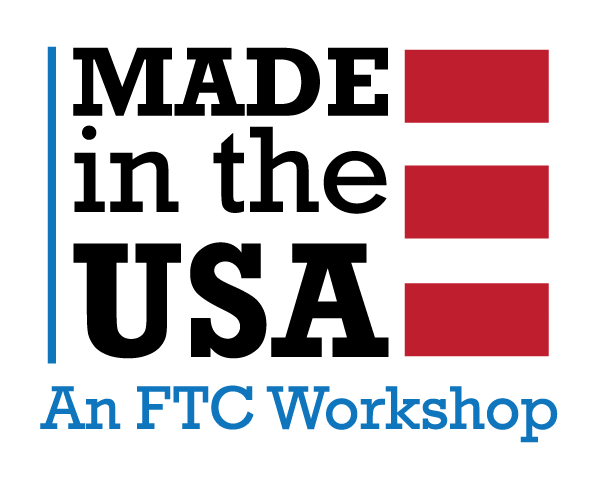We like to think of September 26th as a notable date in consumer protection history. On that day in 1914, the Federal Trade Commission opened its doors. And on that day in 2019, the FTC will convene a workshop on Made in the USA claims.
“Made in the USA” has become a staple in advertising, on products, and on packaging. Based on public hearings, consumer perception research, and thousands of comments from interested parties, the FTC issued its Enforcement Policy Statement On U.S. Origin Claims in 1997. The Policy Statement isn’t a federal regulation, but it offers guidance on how the agency applies the FTC Act’s statutory prohibition on “unfair or deceptive acts or practices” to Made in the USA representations.
 According to the Policy Statement, when a marketer makes an unqualified Made in the USA claim – in other words, a claim that doesn’t include clear limitations or caveats – the marketer should have a reasonable basis for asserting that “all or virtually all” of the product is, in fact, made in the United States. What’s more, like any other company making an objective product claim, the marketer should have support for that representation in hand before conveying the claim to consumers.
According to the Policy Statement, when a marketer makes an unqualified Made in the USA claim – in other words, a claim that doesn’t include clear limitations or caveats – the marketer should have a reasonable basis for asserting that “all or virtually all” of the product is, in fact, made in the United States. What’s more, like any other company making an objective product claim, the marketer should have support for that representation in hand before conveying the claim to consumers.
At Made in the USA: An FTC Workshop, panelists will discuss consumer perception of Made in the USA and other U.S.-origin claims. They’ll also consider whether the FTC can improve the Made in the USA enforcement program. To ensure an enlightening conversation, panelists will include experts from various sectors with a wide range of perspectives.
To help frame the discussion, FTC staff is asking for public comments about key questions related to how consumers perceive Made in the USA claims and related topics. We’ll keep the public record open until October 11, 2019.
We’ll post a detailed agenda soon, but for now, mark September 26th on your calendar. Made in the USA: An FTC Workshop will take place at the FTC’s Constitution Center, 400 7th Street, S.W., in Washington, DC. (It’s at the L’Enfant Plaza Metro station.) The workshop is free and open to the public. Can’t make it to DC that day? The half-day workshop will be webcast.
